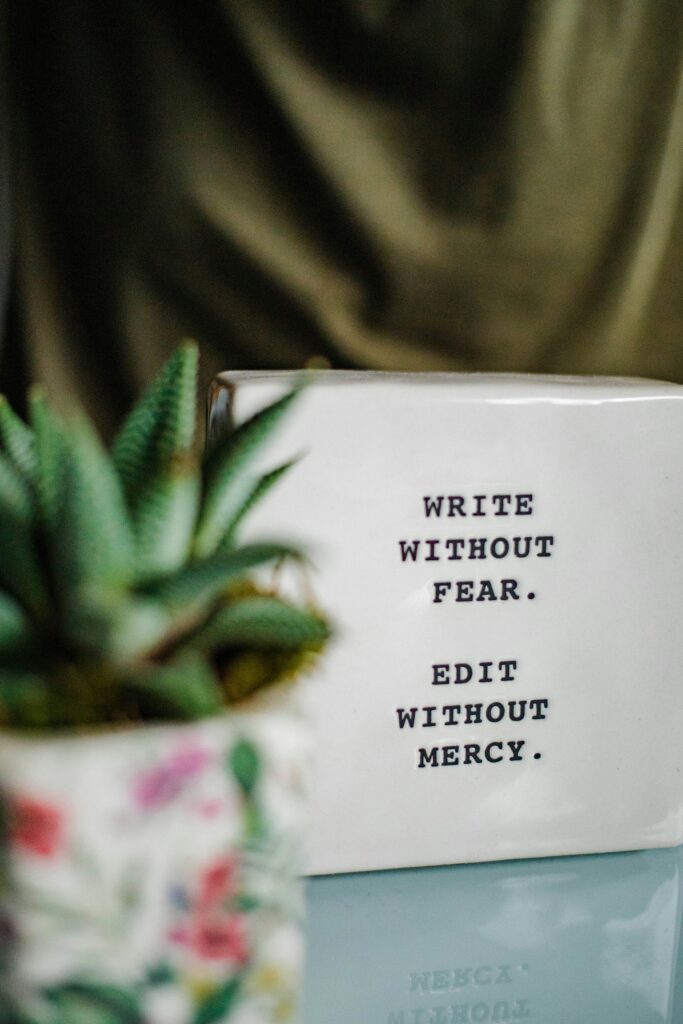So says every writer who embarked upon a self-edit of their novel I suspect.

Photo by hannah grace on Unsplash
By August of 2023 I’d completed what I thought may be a final draft of Mindhouse, I’d built my website, I’d done an editing pass, I’d even set up some social media presence. In short, I was done, home and dry, mission complete. Then I happened upon some information on the web that suggested that in order to pursue traditional publishing your debut sci-fi novel should come in at no more than one hundred and twenty thousand words. My jaw did not drop so much as base jump from high altitude. Mindhouse was sitting at a coffee-table collapsing two hundred and eight thousand words.
When I had replumbed my heart into my arteries and my grey matter had ceased its panic-stricken attempts to abandon ship via my nasal cavity I came to the conclusion that there was nothing to be done but roll up my sleeves and indulge in a lengthy and brutal editing session. Eighty-seven thousand of my word babies must die and I must be their executioner.
At that time my notion of ‘lengthy’ anticipated perhaps a month or two of diligent rework. How hard can it be to remove words? Surely it would be a cakewalk when compared to the harrowing, often masochistic, process or writing them in the first place? Actually, it turns out that it’s pretty difficult. And when I say ‘pretty difficult’ I mean life-drainingly, eye-bleedingly difficult. I’m not indulging in hyperbole to any great degree when I say that at times it verged on being physically painful. About seven months and a copy of ProWritingAid later, the job is done. Mindhouse now stands at a much leaner, cleaner one hundred and nineteen thousand words.
Why do I tell you all this? Well, aside from reaching my target, it explains why this is the first blog entry in months. I also wanted to document what I learned about myself and my writing. My goal may have been a sweeping cut to the size of the novel, but along the way I discovered a great deal about my craft. Firstly, I learned that my earlier edits were nowhere near comprehensive enough. From finding far more grammatical inaccuracies to identifying overuse of adverbs I recognised and corrected many weaknesses in my work.
Moreover, while some of the culled words came from scenes that perhaps aided character development in minor ways but did not advance the plot, the majority came from tightening up the prose, finding more concise language and learning to step back from the work, remove my rose-tinted spectacles and replace them with my ruthless welder’s mask of editing. The novel that emerged from this process is not only shorter, it’s much stronger.
As I closed upon the last edits to the epilogue, I thought I’d revel in a wonderful sense of euphoria on completion of the ordeal. In truth, it was rather an anticlimax. I was simply relieved to be able to relinquish my editing tools. Quiet satisfaction ruled my emotions instead of excitement.
Now I must embark on the journey of how to publish the work beginning with beta readers. Somehow the old adage about ‘out of the frying pan and into the fire’ springs to mind.
It’s cathartic to write this account, but I also hope if any other neophyte writers read it, then perhaps I can impart my biggest takeaway from the whole affair: If you haven’t edited until your sanity is fraying faster than the waistband of your favourite jeans and your heart aches like a high school rejection, you aren’t done yet.